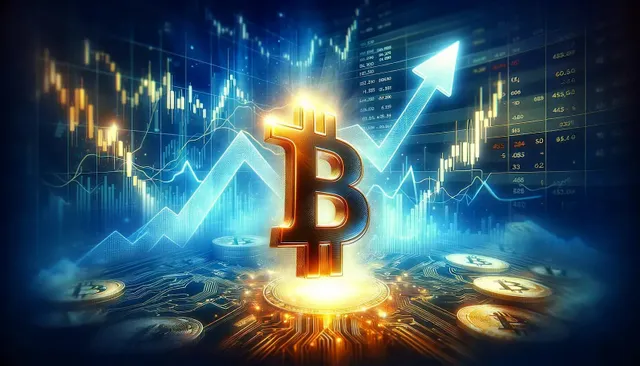Bitcoin Breaks Records - RWAs Enter the Game
As Bitcoin approaches new record highs, attention shifts back to the crypto world.
This strong recovery, driven by ETFs and more institutional interest, comes along with a new trend: the tokenization of real assets, or RWAs.
These hybrid tools sit between traditional finance and Web3, attracting investors who want stability and options to diversify.
Bitcoin hits new records, RWAs enter the scene
In simple terms
RWAs make real-world investments available through blockchain technology. Includes real estate, bonds, and gold, with minimum investments starting at $50. Platforms like RealT, Ondo, and Centrifuge are gaining trust and legitimacy. Why do investors find RWAs so appealing? RWAs are tokens backed by real-world assets such as property, gold, or bonds. This approach opens up investment opportunities that used to be limited to a small group.

By 2025, this market saw rapid growth: a 260% increase in just six months. Total value rose from 8.6 billion dollars to 23 billion dollars. The boost came from a combination of rising interest rates, a banking credit crisis, and the appeal of steady returns.
Investors get several benefits:
They earn regular income from rent or bond payouts. Lower initial capital needed because investments can be split into smaller parts. Regulatory clarity is improving, with top projects registered or approved by authorities. RWAs can also be less affected by crypto market ups and downs because they are linked to the economy.
The infrastructure supporting RWAs has become more mature. Platforms like Centrifuge, Ondo, and RealT are well-known for offering secured assets. Their offerings appeal to both new and experienced investors. RWAs have moved beyond being just a DeFi trend; they are now a key part of on-chain finance.
Since 2023, efforts have grown to make it easier for anyone to invest in RWAs. Here are the main types to know.
Tokenized Real Estate: RealT and Property Fractions This is the most straightforward type of RWA. RealT, a pioneer in the field, allows people to buy small shares of rental properties in the U.S. using ERC-20 tokens. Each token gives the owner a part of the rent paid in USDC.
Starting at just $50, these investments are accessible for many. All deals are legal and structured through local LLCs. Yields can range from 8% to 12% a year, depending on the property. It’s a clear example of using blockchain to make real estate investments easier.
For cautious investors, tokenized bonds offer stability and steady income. Ondo Finance offers digital versions of U.S. Treasury bonds, called OUSG and USDY. These generate an annual yield of almost 5%, and you can buy them without a broker.
Credefi offers loans backed by European companies. It combines classic risk checks with smart contracts to manage the loans. Returns are estimated between 8% and 12%.
Trade receivables, or invoices and leasing contracts, are also tokenized. Centrifuge, working with Aave and MakerDAO, helps small companies turn their invoices into digital assets. RealT also provides this service.
Investors put money into these assets and receive stable returns, sometimes as high as 13%. This opens up a new way to invest in assets that were once only available to big banks or specialized funds.
Commodities: Digital Gold with Paxos Gold and Tether Gold
Now it’s possible to own gold without storing or carrying it. Paxos Gold (PAXG) and Tether Gold (XAUT) let you buy a digital piece of gold backed by a real bar kept in a safe vault.
These tokens, made to follow Ethereum rules, are traded just like other cryptocurrencies. Gold remains a safe choice for many, and these digital versions make it easy to buy, sell, and include in a Web3 wallet.